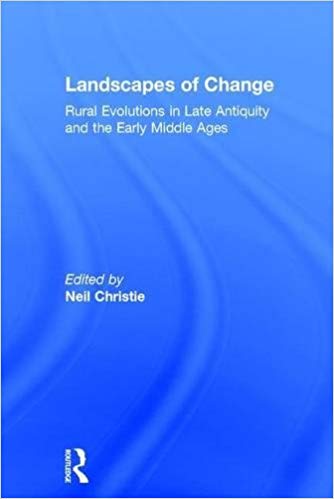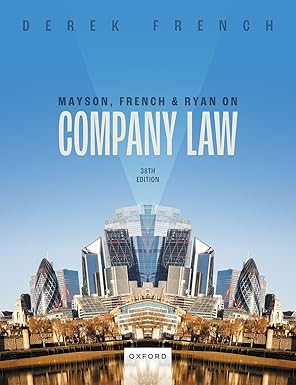Only in recent years has archaeology begun to examine in a coherent manner the transformation of the landscape from classical through to medieval times. In Landscapes of Change, leading scholars in the archaeology of the late antique and early medieval periods address the key results and directions of Roman rural fieldwork. In so doing, they highlight problems of analysis and interpretation whilst also identifying the variety of transformations that rural Europe experienced during and following the decline of Roman hegemony. Whilst documents and standing buildings predominate in the urban context to provide a coherent and tangible guide to the evolving urban form and its society since Roman times, the countryside in many ages remains rather shadowy - a context for the cultivation, gathering and movement of food and other resources, inhabited by farmers, villagers and miners. Whilst the Roman period is adequately served through occasional extant remains and through the survey and excavation of villas and farmsteads, as well as the writings of agronomists, the medieval one is generally well marked by the presence of still extant villages across Europe, often dependent on castles and manors which symbolise the so-called 'feudal' centuries. But the intervening period, the fourth to tenth centuries, is that with the least documentation and with the fewest survivals. What happened to the settlement units that made up the Roman rural world? When and why do new settlement forms emerge? Landscapes of Change is essential reading for anyone wanting an up-to-date summary of the results of archaeological and historical investigations into the changing countryside of the late Roman, late antique and early medieval world, between the fourth and tenth centuries AD. It questions numerous aspects of change and continuity, assessing the levels of impact of military and economic decay, the spread and influence of Christianity, and the role of Germanic, Slav and Arab settlements in disrupting and redefining the ancient rural landscapes.
چکیده فارسی
فقط در سالهای اخیر باستانشناسی شروع به بررسی منسجمی تغییر منظره از دوران کلاسیک تا قرون وسطی کرده است. در مناظر تغییر، محققان برجسته در باستان شناسی اواخر دوره باستانی و اوایل قرون وسطی به نتایج و جهت گیری های کلیدی کار میدانی روستایی روم می پردازند. با انجام این کار، آنها مشکلات تحلیل و تفسیر را برجسته می کنند و در عین حال انواع دگرگونی هایی را که اروپای روستایی در طی و پس از افول هژمونی روم تجربه کرد، شناسایی می کنند. در حالی که اسناد و ساختمان های ایستاده در بافت شهری غالب هستند تا راهنمای منسجم و ملموسی برای شکل شهری در حال تکامل و جامعه آن از زمان رومیان ارائه دهند، روستا در بسیاری از اعصار تا حد زیادی سایه باقی مانده است - زمینه ای برای کشت، جمع آوری و جابجایی غذا و سایر منابع، ساکنان کشاورزان، روستائیان و معدنچیان. در حالی که دوره رومی به اندازه کافی از طریق بقایای گاه به گاه باقی مانده و از طریق بررسی و حفاری ویلاها و مزرعه ها و همچنین نوشته های کشاورزان انجام می شود، دوره قرون وسطی به طور کلی با حضور روستاهای هنوز موجود در سراسر اروپا مشخص شده است که اغلب وابسته به قلعه ها و عمارت هایی که نماد قرون به اصطلاح "فئودالی" هستند. اما دوره میانی، یعنی قرن چهارم تا دهم، با کمترین مستندات و با کمترین بقا است. چه بر سر واحدهای سکونتگاهی که جهان روستایی روم را تشکیل میدادند، آمد؟ چه زمانی و چرا اشکال جدید سکونتگاه پدیدار می شوند؟ منظرههای تغییر برای هر کسی که میخواهد خلاصهای بهروز از نتایج تحقیقات باستانشناسی و تاریخی در حومههای در حال تغییر دنیای روم پسین، اواخر دوران باستان و اوایل قرون وسطی بین قرنهای چهارم و دهم پس از میلاد داشته باشد، خواندنی ضروری است. این مقاله جنبههای متعدد تغییر و تداوم را زیر سوال میبرد، سطوح تأثیر زوال نظامی و اقتصادی، گسترش و نفوذ مسیحیت، و نقش سکونتگاههای ژرمنی، اسلاو و عرب را در برهم زدن و بازتعریف مناظر روستایی باستانی ارزیابی میکند.
ادامه ...
بستن ...
Ebook details:
عنوان: Landscapes of Change Rural Evolutions in Late Antiquity and the Early Middle Ages (Late Antique & Early Medieval Studies) (9781840146172)
نویسنده: Neil Christie
ناشر: Routledge (August 28, 2004)
زبان: English
شابک: 1840146176, 978-1840146172
حجم: 7 Mb
فرمت: True Pdf
ادامه ...
بستن ...










